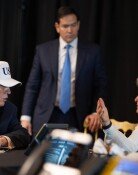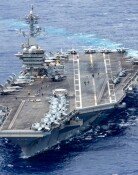Political banners tarnish national reputation
Political banners tarnish national reputation
Posted July. 05, 2023 07:51,
Updated July. 05, 2023 07:51
"Those are the last thing I imagined I would see in South Korea when I decided to defect from the North."
A defector from North Korea was surprised to see political banners all over the streets in South Korea, something they never expected after leaving their home country. Back in North Korea, the defector used to create propaganda leaflets. They were shocked by the banners in South Korea, as they contained incredibly strong and offensive language that one would typically associate with North Korea. The defector found it hard to understand why South Korean politicians, who are familiar with the internet and mobile technology, would rely on such outdated and provocative propaganda, which is more fitting for Pyongyang.
With the general elections just 280 days away, South Korea has become a nation filled with banners. Despite the guidelines issued by the Ministry of Interior and Safety in May, the situation remains unchanged. Citizens are voicing their complaints and experiencing emotional distress due to the overwhelming presence of banners in the streets. Many of these banners contain offensive slanders or embarrassing self-promotion. Some citizens express anger as they have to endure nonsensical wording on a daily basis.
Political banners, subject to limited regulations for quite some time, have long lost their intended role in supporting party-based democracy. The predominant use of defamatory and offensive criticism in these banners even distorts the true nature of the issues that citizens should be aware of. Their purpose is to create divisions in society by highlighting extreme positions. Examples include vitriolic and sarcastic phrases accusing the opposition party of protecting corrupt members involved in bribery and blaming the president as the main culprit messing with the Korean SAT. According to a South Korean lawmaker, when the party leadership decides on specific wording and disseminates it to district offices nationwide, grassroots democratic values can easily be overlooked, and diverse perspectives may often be lost.
The banners also serve to reinforce the political establishment by allowing only incumbent lawmakers and party regional office heads to display them, creating a significant entry barrier for new and aspiring politicians.
Provincial governments hesitate to remove banners due to concerns about upsetting incumbent lawmakers. In a district of North Gyeonggi Province, one lawmaker flooded the streets with numerous banners, violating the 15-day removal deadline. When aspiring politicians requested the relevant public servants to take them down, they were told to contact the lawmaker directly for a resolution. A prospective candidate highlighted that political banners should be financed by the party, as instructed by the Ministry of Interior and Safety, but these banners serve as an illicit means of pre-election campaigning with personal funds and agendas.
"The mentioned North Korean defector highlighted the ironic nature of the regime's political system through propaganda materials in North Korea. For instance, street signs stating, "Let's put our heads together!" caused frustration and concern among people, implying the regime's intention to collect essential food items such as kimchi, rice, and corn from the citizens through intermediaries. The defector noted that despite hiding their grievances in public, many North Korean individuals would privately criticize propaganda materials within their inner circles of family and friends."
South Korea faces a similar situation where political banners promoting extremism and hatred severely undermine our once-highly-esteemed national standing. If foreign tourists discover the content of these banners, our democracy may lose its favorable impression, potentially leaving them disillusioned. It is no surprise that North Korean defectors, who escaped from authoritarianism, express their exasperation with such banners. The National Assembly should promptly revise the relevant rules and regulations, albeit belatedly.







